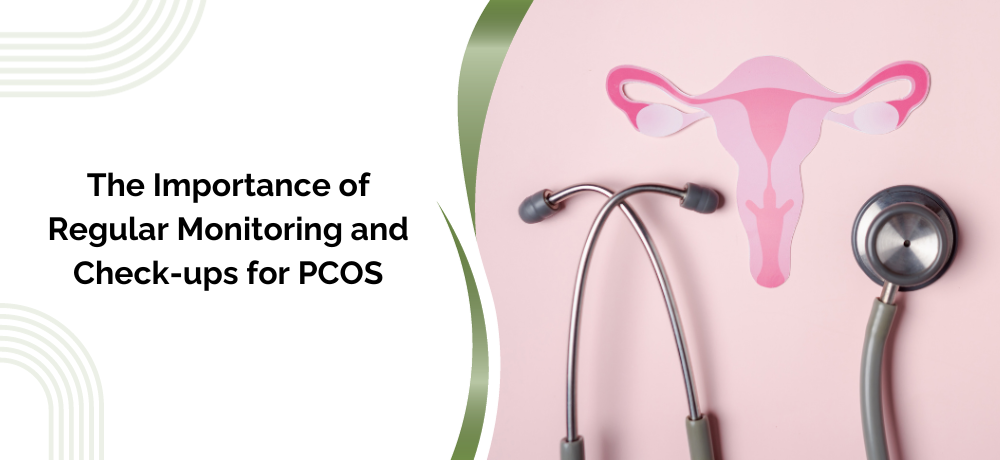The Importance of Regular Monitoring and Check-ups for PCOS
- Tara Andresen
Categories: Blood Sugar Management Fertility Support Hormonal Imbalances Hormone Balancing PCOS Treatment Weight Management women's health Women’s Health Treatment

Polycystic Ovary Syndrome (PCOS) is a common hormonal disorder affecting millions of women worldwide. Managing PCOS effectively requires regular monitoring and check-ups. In this blog, we'll discuss why these routine appointments are crucial for your health and well-being.
Early Detection and Diagnosis of PCOS
Regular check-ups are vital for the early detection and diagnosis of PCOS, a complex hormonal disorder that can often go unnoticed or undiagnosed. Various symptoms, including irregular menstrual cycles, acne, excessive hair growth, and weight gain characterize PCOS. By visiting a healthcare provider regularly, individuals with PCOS can undergo a thorough evaluation of their symptoms and medical history. These visits can help identify PCOS at an earlier stage, allowing for prompt intervention and preventing the condition from progressing further. Early diagnosis is key to effective management and improved long-term outcomes.
Comprehensive Symptom Management
PCOS manifests differently in each individual, with symptoms varying in severity and combination. Regular check-ups offer a valuable opportunity to assess the extent of PCOS-related symptoms and their impact on overall well-being. Healthcare providers can tailor treatment plans to address specific symptoms such as menstrual irregularities, acne, hirsutism (excess hair growth), and weight management. Continuous monitoring enables adjustments in treatment strategies to ensure that individuals with PCOS receive personalized care that maximizes symptom relief and enhances their quality of life.
Fertility Assessment and Support
Many individuals with PCOS face challenges related to fertility. Regular check-ups play a critical role in assessing reproductive health, tracking ovulation, and exploring fertility treatment options. By closely monitoring the menstrual cycle and hormone levels, healthcare providers can identify factors that may be hindering conception. This proactive approach helps individuals with PCOS make informed decisions about family planning and increases the chances of successful pregnancy through treatments such as ovulation induction or assisted reproductive technologies.
Cardiovascular Health Management in PCOS
PCOS is associated with an increased risk of cardiovascular problems, including hypertension (high blood pressure), dyslipidemia (abnormal cholesterol levels), and endothelial dysfunction. Regular check-ups enable healthcare providers to monitor and manage these cardiovascular risk factors. Through lifestyle modifications, dietary recommendations, and, when necessary, medication interventions, individuals with PCOS can reduce their long-term risk of heart disease. Regular assessments of blood pressure, cholesterol levels, and vascular health contribute to a comprehensive approach to cardiovascular health management in PCOS.
Monitoring Metabolic Health and Diabetes Prevention
Insulin resistance is a common feature of PCOS and often leads to an elevated risk of developing type 2 diabetes. Regular check-ups are essential for monitoring blood sugar levels and assessing insulin sensitivity. Healthcare providers can offer guidance on dietary and lifestyle modifications to manage insulin resistance effectively. In some cases, insulin-sensitizing medications may be prescribed. Regular monitoring ensures early detection of any glucose abnormalities, enabling timely intervention to prevent or manage diabetes, a significant concern in PCOS management.
Taking charge of your PCOS means prioritizing regular monitoring and check-ups with qualified healthcare professionals, including a Naturopath, if that's your preferred approach. By staying informed about your PCOS and working closely with healthcare professionals, such as a Naturopath, you can lead a healthier and happier life.
If you’re looking for a Naturopath in Toronto, Get in touch with NDcare today!
To learn more about the services we offer, please click here. To contact us, please click here or call us at (647) 330-1551.